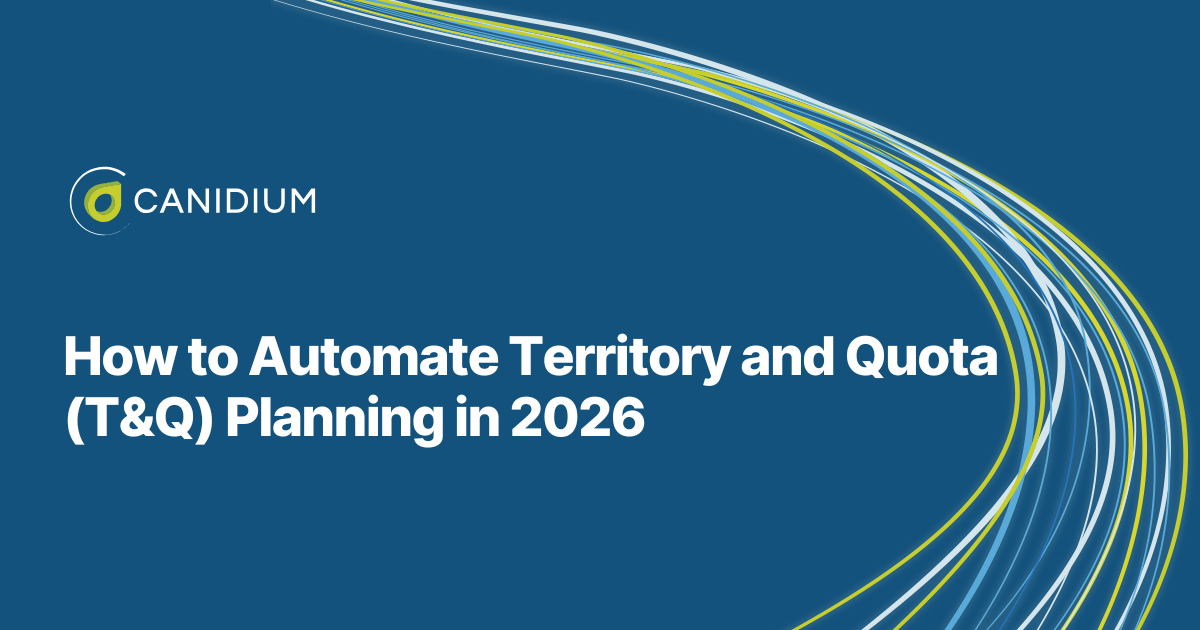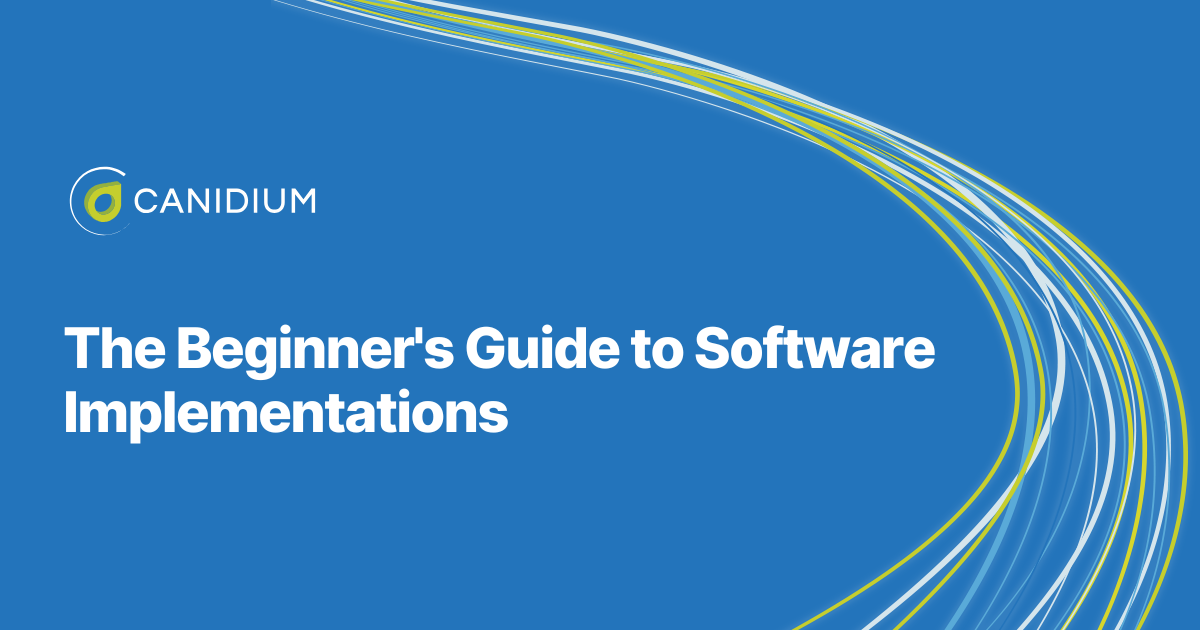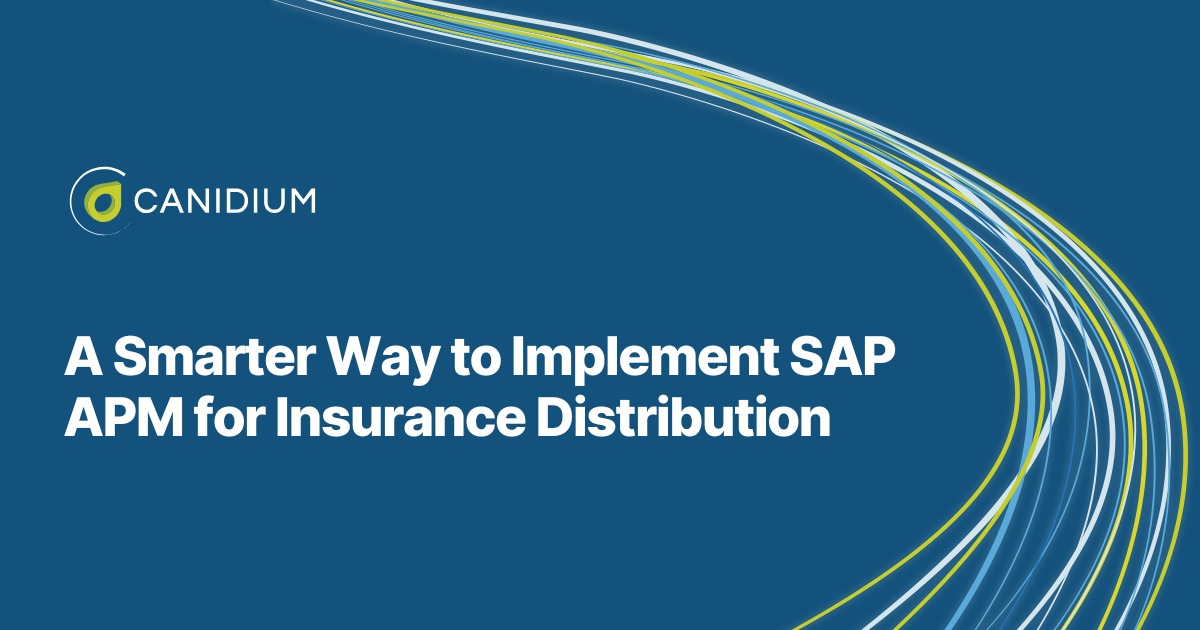Organizations with Incentive Compensation Management (ICM) often experience issues post-implementation. System lagging. Data redundancies. Integration problems. User training problems. Or maybe the solution feels clunky, but you can't identify the core issue.
Your organization spent a significant amount of money implementing Incentive compensation management (ICM) software. It seems hard to believe that more fixes are necessary. The fact is: ICM software requires ongoing maintenance and tune-ups.
Clients who use Canidium for their implementation also get the benefit of a seasoned strategic partner. This allows our clients to be proactive when issues arise. They can ask Canidium for a Technical Health Check to diagnose the problem and sign up for managed service hours to fix it.
Read about managed services here
By the end of this article, you will understand:
- Common issues with Incentive Compensation Management (ICM) software
- The harm that these issues can cause your organization
- The opportunity cost of delaying solutions
- What you can do about these issues today
8 Issues with Incentive Compensation Management (ICM) Software Post-Implementation
While every client scenario is unique, we repeatedly see the same post-implementation struggles. Here are eight of the most common ones:
1. Data Integration Issues
Data integration is often a significant challenge. Getting data from various sources into Incentive Compensation Management (ICM) accurately and promptly can be complicated. It can also develop issues as data sources change.
2. Complex Commission Structures
If your organization has complex commission structures, configuring them an incentive compensation management (ICM) platform can be challenging. Ensuring the system accurately calculates commissions based on various factors and rules can require multiple iterations.
3. Change Management
Employees might resist changes to their commission processes and systems. Effective change management is crucial to ensure that the transition to incentive compensation management (ICM) is smooth and well-received. This can often take longer than expected, so revisiting the topic regularly is essential.
4. Training and User Adoption
Inadequate training and support for end-users can lead to low user adoption rates and operational inefficiencies. Users need to understand how to use the system effectively. A second round of user training often eliminates most of the stragglers.
5. Performance and Scalability
As an organization grows, performance issues may arise if the system cannot scale effectively. As conditions in your organization change, it's essential to revisit the platform's configuration regularly.
6. Reporting and Analytics
Generating meaningful reports and analytics from the data stored in incentive compensation management (ICM) can be challenging. Organizations may need help extracting actionable insights from the data, and reevaluating these capabilities may be necessary.
7. System Downtime and Technical Issues
Technical problems, system downtime, or bugs can disrupt operations. Regular maintenance and proactive technical support are essential to mitigate these issues.
8. Vendor Support
Organizations might experience issues with vendor support, such as slow response times, lack of expertise, or inadequate support resources. A managed services partner is available to solve issues that may arise.
11 Consequences of Procrastinating on ICM Issue Resolution
The implementation of an Incentive Compensation Management (ICM) platform can have significant negative impacts on business functions and sales growth. Here's how:
1. Sales Performance and Motivation
Inaccurate or complex commission calculations can have a detrimental effect on sales teams. If employees feel they are not being compensated correctly, it can decrease morale and performance.
2. Data-Driven Decision-Making
Inaccurate or unavailable data due to integration issues can hinder data-driven decision-making processes. This can result in suboptimal sales and marketing strategies, potentially leading to lost revenue opportunities.
3. Falling Behind Trends
Difficulty customizing the system to meet your needs may restrict the ability to adapt to changing market conditions, sales strategies, or business models, which can hinder sales growth.
4. Operational Efficiency
If the system is not configured correctly, it can lead to inefficient commission administration processes. This wastes time and can result in errors that impact sales operations.
5. Compliance and Legal Risks
Failure to meet regulatory compliance standards can result in legal issues, fines, or reputational damage. This can negatively affect sales growth by diverting resources away from revenue-generating activities.
6. Customer Experience
If sales representatives are dealing with commission-related problems, it can affect their focus and the quality of customer service. This can harm customer relationships and loyalty, impacting sales growth in the long run.
7. Scalability and Performance
As the business grows, a system that can't scale efficiently may lead to operational bottlenecks, slowing down sales processes and hindering the ability to serve a more extensive customer base.
8. Lack of Visibility
Problems with reporting and analytics can result in a lack of visibility into sales performance, making it challenging to identify growth opportunities and optimize sales strategies.
9. Employee Satisfaction
Difficulty using and dissatisfaction with the system can lead to employee turnover. High turnover in sales teams can harm sales growth, as experienced salespeople often outperform newcomers.
10. Operational Downtime
Technical issues and system downtime can disrupt sales operations, causing delays in order processing and customer interactions and potentially leading to lost sales opportunities.
11. Budget Overruns
Unforeseen costs related to implementing and maintaining Incentive Compensation Management (ICM) can strain the budget, affecting the allocation of resources for other sales growth initiatives.
The Biggest Risk of All: Opportunity Cost of Faulty ICM
The lesser-known risk of allowing your incentive compensation management platform to underperform is opportunity cost.
The opportunity cost can be substantial. Opportunity cost refers to the potential benefits or opportunities foregone when a different decision is made. In the context of ongoing issues with Incentive Compensation Management (ICM), here are some of the opportunity costs an organization might face:
Lost Sales and Revenue Opportunities: Inaccurate commission calculations or inefficient processes can lead to demotivated sales teams and potential customer dissatisfaction. This, in turn, can result in lost sales and revenue opportunities, impacting the company's growth and profitability.
Competitive Disadvantage: Companies that respond quickly to market changes and customer demands have a competitive advantage in an increasingly competitive business environment. Issues with Incentive Compensation Management (ICM) may impede an organization's ability to adapt and gain or maintain market share.
Lack of Data-Driven Insights: Data quality and reporting issues can hinder an organization's ability to make data-driven decisions. This, in turn, can lead to missed opportunities for optimizing sales strategies and identifying market trends or customer preferences.
Employee Retention and Productivity Problems: Ongoing problems with the system can lead to employee turnover and reduced productivity. The opportunity cost includes the loss of experienced employees and the investment in training and onboarding new staff.
Compliance and Reputation Damage: Failure to address compliance issues can lead to legal problems, fines, and reputational damage. The opportunity cost here includes potential legal and financial liabilities and damage to the company's brand and reputation.
Resource Allocation Woes: Resources spent on addressing and managing ongoing issues with Incentive Compensation Management (ICM) could be used elsewhere in the organization to drive growth and innovation. Redirecting these resources could lead to more strategic initiatives and better outcomes.
Customer Relationship Failures: Dissatisfied or frustrated sales representatives may not provide the best customer experience, potentially damaging customer relationships. The opportunity cost includes the potential loss of loyal customers and the ability to secure repeat business.
Loss of Long-Term Growth and Expansion: Inefficient systems can limit an organization's ability to scale and expand into new markets or product lines. This opportunity cost includes missing out on potential growth and diversification opportunities.
What can you do about it right now?
A Technical Health Check from Canidium can help diagnose Incentive Compensation Management (ICM) functionality issues by comprehensively assessing the system's health and performance. This involves a systematic evaluation of various aspects of the Incentive Compensation Management (ICM) platform.
Here's how a Technical Health Check from Canidium can diagnose these issues:
- System Performance Assessment: Canidium will assess the overall performance of the SAP Commission system to identify any bottlenecks or slowdowns. They will review system response times, database performance, and performance-related issues.
- Data Integration and Quality: The health check will examine data integration processes and data quality. Canidium will ensure that data from various sources is accurately and efficiently integrated into the system. Data quality issues, such as duplicates, missing data, and data format inconsistencies, will be identified and addressed.
- Customization and Configuration Review: Canidium will evaluate the system's customization and configuration to ensure it meets the organization's requirements. Any deviations or misconfigurations that may lead to functionality issues will be identified.
- Security and Compliance Assessment: The health check will assess the system's security measures and ensure compliance requirements are met. This includes checking user access controls, encryption, and data protection mechanisms.
- Reporting and Analytics Evaluation: Canidium will review the reporting and analytics capabilities of the SAP Commission system. They will ensure that reports are generated accurately and that the system supports the organization's data analysis needs.
- Data Accuracy and Calculation Accuracy: The health check will validate the accuracy of commission calculations. Canidium will review the rules and logic used in calculations to ensure they align with the organization's compensation plans and policies.
- System Downtime and Technical Issues: Any system downtime or technical issues will be documented and assessed to identify the root causes. Canidium will work to resolve these issues and provide recommendations for preventing future disruptions.
- User Training and Adoption: Canidium will assess the level of user training and adoption within the organization. They will identify areas where additional training and support are needed to improve user efficiency and reduce errors.
- Change Management and Process Optimization: Canidium will evaluate the change management processes and assess whether the organization is effectively adapting to the SAP Commission system. They will provide recommendations for optimizing processes and aligning them with best practices.
- Cost Management: The health check will review the costs associated with the SAP Commission system. Canidium will assess the return on investment (ROI) and identify opportunities to manage costs effectively.
After conducting the technical health check, Canidium will provide a detailed report outlining the findings and recommendations for addressing identified issues. This report serves as a roadmap for improving the functionality of the SAP Commission system, optimizing performance, and mitigating potential problems.
By proactively diagnosing and addressing these issues, organizations can ensure that their SAP Commission platform operates at its best, driving sales performance and minimizing opportunity costs.
In this article, we covered common problems in faulty incentive compensation management implementations, the havoc these issues can wreak, the opportunity cost of delaying the remedy, and what a Technical Health Check can do to solve those issues.
Your next step is to get to the bottom of your incentive compensation management issues. Fill out this form to download the Canidium Technical Health Check Guide.
Get Your Technical Health Check Guide
Photo by Elisa Ventur on Unsplash








